Graham Reid | | 4 min read
Help!
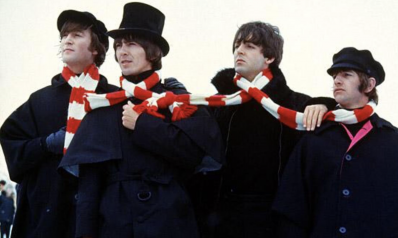
When the Beatles released their Help! album in August 1965 they owned the world: they'd conquered Britain and the Commonwealth countries, then America and then just about everywhere.
There were Beatle copy bands from Manila to Mexico City, Newcastle to New Zealand.
Beatlemania was real.
They'd sold millions of records, played scores of concerts (Shea Stadium was just a week away), made two films (A Hard Day's Night and Help!), collected MBEs from Queen Elizabeth II and . . .
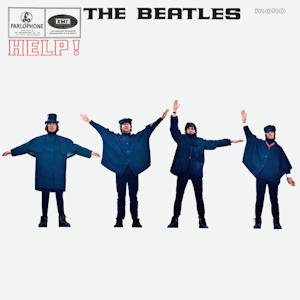 The other side of this is, however, that the world owned them: the constraints of Beatlemania, touring as a locked-down unit and universal acclaim was beginning to be constricting.
The other side of this is, however, that the world owned them: the constraints of Beatlemania, touring as a locked-down unit and universal acclaim was beginning to be constricting.
Harrison chaffed a bit, the eager-to-please McCartney enjoyed the spotlight, Ringo went along with it but Lennon felt it acutely.
He later spoke of this time as his Fat Elvis period: he was overweight, lazy, hemmed in and learning the lesson of “beware what you wish for”: the “toppermost of the poppermost” wasn't quite as wonderful as it had seemed back in Hamburg.
He put it into the song Help!, a crier de coeur wrapped up in Beat-pop: “Now my life has changed in oh-so many ways, my independence seems to vanish in the haze . . .”
The film Help! – a kind of caper and Bond parody – had been a reasonably enjoyable experience (they were frequently stoned on set) and the flits to the Bahamas and the Alps were useful distractions.
But the film demanded a soundtrack of new songs and the Beatles duly obliged.
The Help! album – pulled from the shelves at random for this on-going column but in a remarkable coincidence almost exactly 60 years after its release – has often been thought to be a lesser record in their canon: a bit of a hasty potboiler like its predecessor Beatles for Sale.
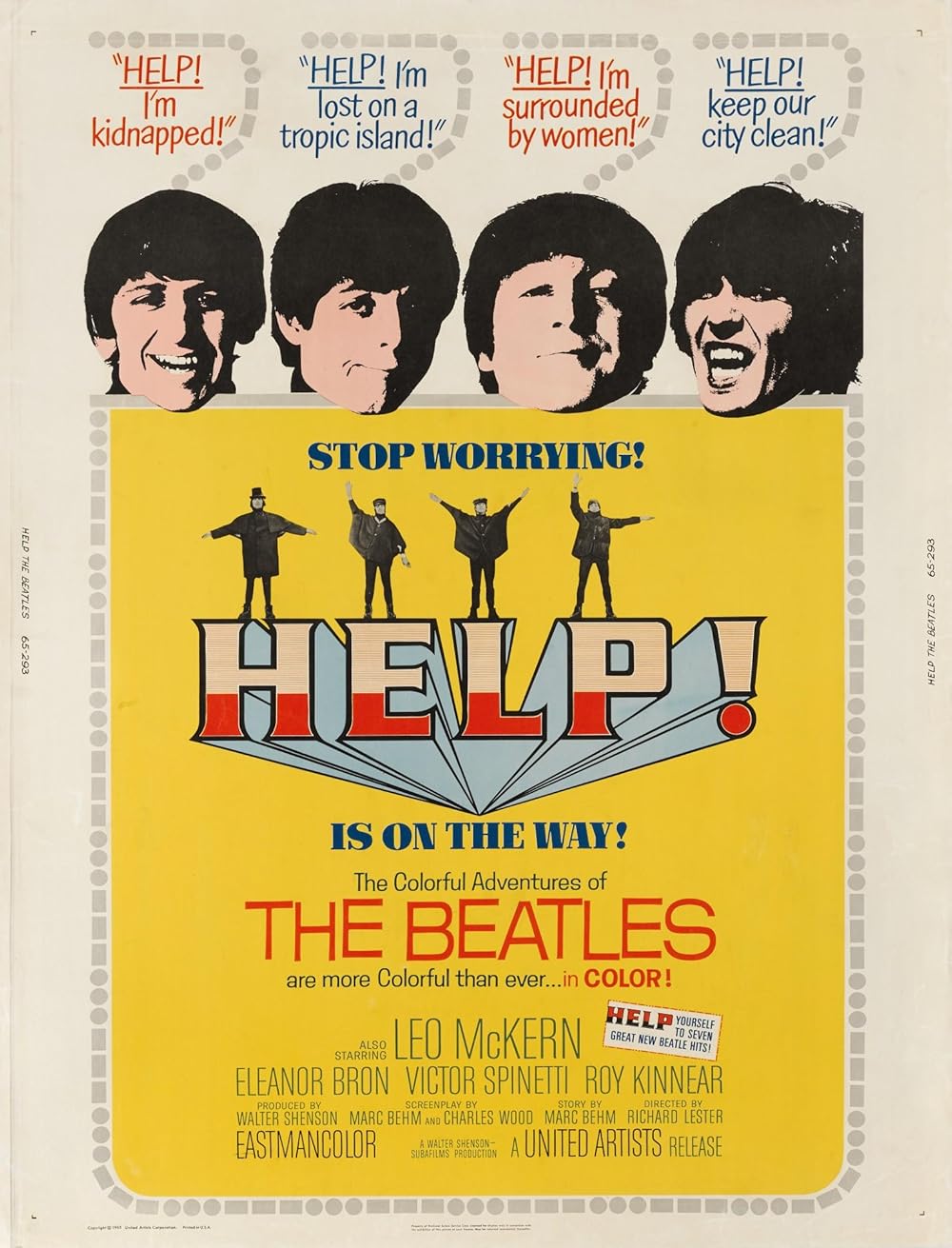 But if the album which followed a year later, Rubber Soul, showed a band freed from the expectations of Beatlemania pop, the hints were there on Help!
But if the album which followed a year later, Rubber Soul, showed a band freed from the expectations of Beatlemania pop, the hints were there on Help!
Lennon's revealing title track showed him that the artist could be a valid subject of the art, and he needn't write just boy-girl pop but could say what he felt.
McCartney too came to a similar conclusion with The Night Before and the jaunty I've Just Seen a Face. His Another Girl was an uncharacteristically bitter put-down of a former lover from him (although songs like the searing I'm Down illuminate that side of him).
Although they were now increasingly writing or bringing near-complete ideas separately, when they chimed together they produced magic like Ticket to Ride which had been released months before but which appears on the album.
Ticket to Ride
It was a tight song with an extraordinary production, it is heavy, the bass is prominent and the melody is somewhat droning (like Lennon's superb Rain, the B-side of Paperback Writer).
Alongside Lennon's Dylanesque You've Got To Hide Your Love Away and the shimmering production of It's Only Love (a song he later dismissed as lightweight, and lyrically it is cliched and lazy), it showed the band confidently exploring other styles and possibilities in studio technology.
And Ringo's turn on the country song Act Naturally fitted thematically with the idea of the movie (where they again played “themselves”).
Harrison's two songs – I Need You and You Like Me Too Much – are lesser vehicles although on I Need You he again experimented with the effects pedal which allowed the sound of the guitar to emerge slowly. He used it better on the earlier B-side Yes It Is.
Then there are the two outliers, Larry Williams' Dizzy Miss Lizzy which – like the filler songs on Beatles for Sale -- was pulled in from their Hamburg days (just a few years before, but it seemed like ancient history), and McCartney's Yesterday which is modestly buried towards the end of the second side, the first song to feature a solo performance by a Beatle.
It was also enhanced by a string quartet and so massively successful half the population of Britain could have retired on the royalties of this one alone.
Yesterday, take 1
 One of the most remarkable aspects of McCartney's work on the album was that day in June – just before his 23rd birthday – when he knocked off the country-flavoured I've Just Seen a Face, the Little Richard-styled screamer I'm Down and the ballad Yesterday.
One of the most remarkable aspects of McCartney's work on the album was that day in June – just before his 23rd birthday – when he knocked off the country-flavoured I've Just Seen a Face, the Little Richard-styled screamer I'm Down and the ballad Yesterday.
Listened to at this distance of decades, the Help! album contains the seeds of their emotions at the time and hints of where they could move forward to: Hide Your Love Away anticipates Norwegian Wood (This Bird Has Flown) which is equally folksy and has the sound of the sitar which Harrison had heard on the set of the movie and would become a life-long obsession.
Lennon opened a door into self-analysis in song (which flowered on In My Life on Rubber Soul) and more opaque lyrics (Ticket to Ride); Harrison grew in confidence as a writer (lyrically about two years behind Lennon and McCartney, a gap which would narrow rapidly by Revolver) and McCartney wrote a timeless classic.
Like Beatles for Sale, the Help! album was a series of small but significant steps towards a post-Beatlemania band.
And while we could never say any Beatle song is obscure, we could argue that Help! at least has what we might call "deep cuts".
For that reason alone (and four great songs: Help!, Hide Your Love Away, Ticket to Ride, Yesterday) Help! is worth a rehearing.
.
Elsewhere occasionally revisits albums -- classics sometimes, but more often oddities or overlooked albums by major artists -- and you can find a number of them starting here.
.
You can hear this album on Spotify here

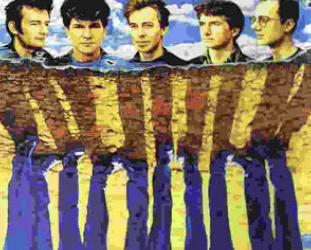

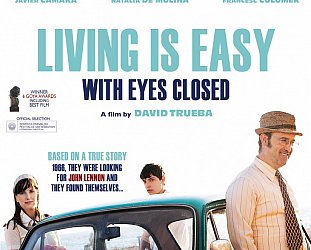
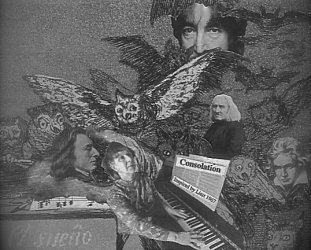
post a comment